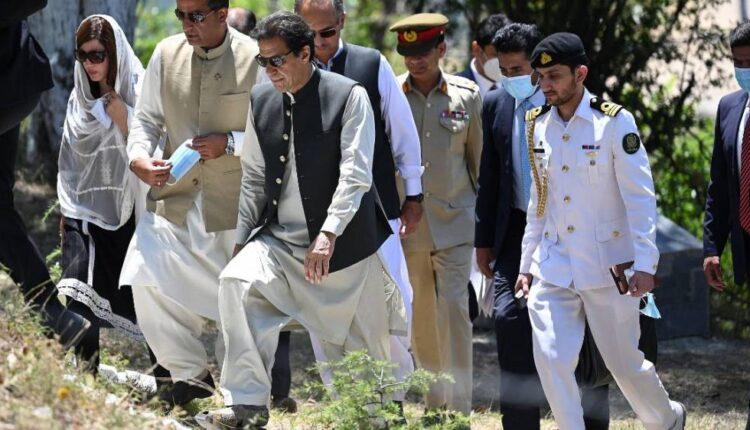New York (CNN Business)The International Consortium of Investigative Journalists (ICIJ) on Sunday released the “Pandora Papers,” an exposé of the financial secrets and offshore dealings of dozens of heads of state, public officials and politicians from 91 countries and territories.
More than 600 journalists from 150 outlets spent two years investigating nearly 12 million confidential files — a bigger cache of documents than 2016’s Panama Papers. The Pandora Papers reveal how unusual offshore finances and secretive wealth have infiltrated global politics. Some of the people named in the papers are major political leaders in developing or impoverished countries, such as Jordan and Kenya.
“Many of the power players who could help bring an end to the offshore system instead benefit from it — stashing assets in covert companies and trusts while their governments do little to slow a global stream of illicit money that enriches criminals and impoverishes nations,” the ICIJ said in its introduction to the series, which is being published by the Washington Post in the United States and the BBC and The Guardian in the United Kingdom.
The names mentioned in the articles are a who’s who of heads of state, billionaires and public officials from all corners of the world. Here are five of the biggest takeaways from the series. Read More
Pakistani Prime Minister Imran Khan
The Panama Papers brought an end to former Pakistani Prime Minister Nawaz Sharif’s term. Former cricket star Imran Khan staged protests against Sharif and was elected prime minister in 2018 on a platform of equity and anti-corruption.The Washington Post reports the Pandora Papers reveal no offshore accounts from Khan — but they do include people in his inner circle, from one of his ministers to a top donor who has funded his party, according to the ICIJ. Khan responded to the investigation on Twitter Sunday.”My [government] will investigate all our citizens mentioned in the Pandora Papers [and] if any wrongdoing is established we will take appropriate action. I call on the international community to treat this grave injustice as similar to the climate change crisis,” Khan tweeted.
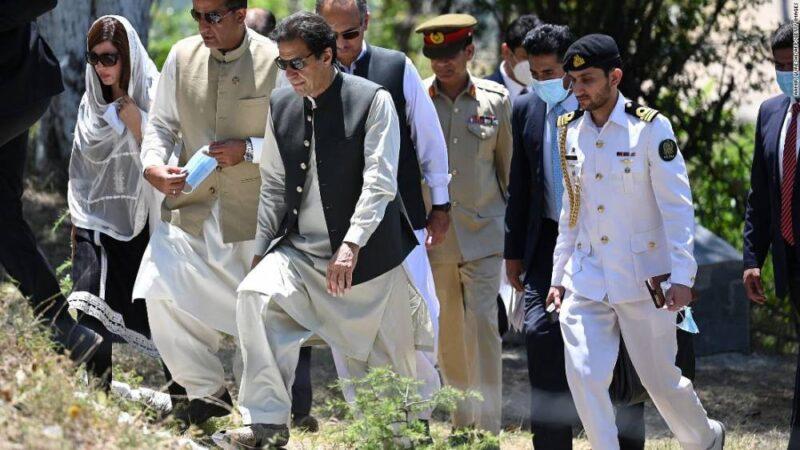
Pakistan’s Prime Minister Imran Khan, center.
Jordanian King Abdullah II
King Abdullah II purchased 14 homes worth more than $106 million in the United Kingdom and United States through front companies registered in tax havens, the ICIJ said. The properties include apartments in central London and Washington, D.C., according to the group.Accountants and lawyers in Switzerland and the British Virgin Islands formed shell companies on the king’s behalf and made plans to shield his name from public view, according to the ICIJ.Though owning offshore accounts is not illegal, Jordan is one of the poorest Arab countries and relies heavily on international aid. Most of the deals took place after the Arab Spring in 2011, the ICIJ reported.”If the Jordanian monarch were to display his wealth more publicly, it wouldn’t only antagonize his people, it would piss off Western donors who have given him money,” Annelle Sheline, a Middle East expert at the Quincy Institute, told the ICIJ.
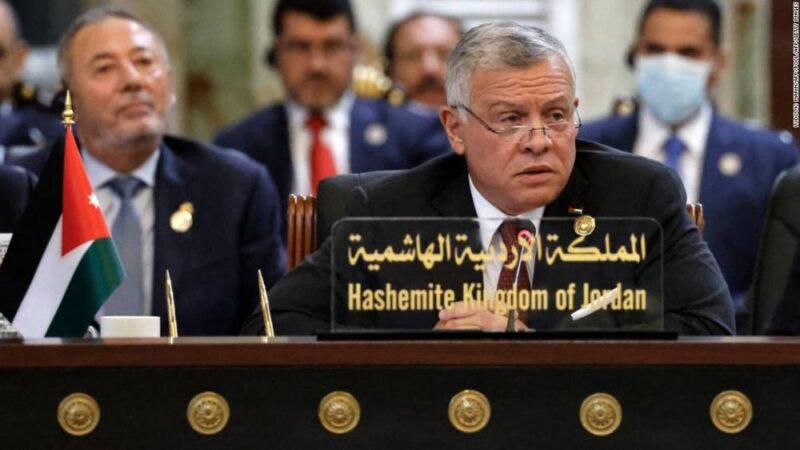
Jordan’s King Abdullah II speaks during a conference in Iraq on Aug. 28, 2021. Jordan’s Royal Hashemite Court said in a statement that the report “included inaccuracies and distorted and exaggerated the facts.””It is no secret that His Majesty owns a number of apartments and residences in the United States and the United Kingdom. This is not unusual nor improper,” the court said in its statement.The properties are used by the King and his family members to stay in during private visits and hence are not publicized for security reasons, not in a bid to conceal assets, it added.The cost of maintaining these properties are “personally funded by His Majesty” the statement said, adding that “none of these expenses have been funded by the state budget or treasury.””Any allegations that link these private properties to public funds or assistance are baseless and deliberate attempts to distort facts,” the statement read.
Kenyan President Uhuru Kenyatta
According to the ICIJ, Kenyan President Uhuru Kenyatta’s family has been accumulating a fortune in offshore tax havens for decades. The Pandora Papers show the family owned at least seven entities based in the British Virgin Islands and Panama, two well-known tax havens, the ICIJ said.The offshore businesses have assets worth more than $30 million, the ICIJ reported. Kenyatta, who has vowed to fight corruption in his country, is the son of Kenya’s first president after its independence.Most of the family’s companies were created before Kenyatta was elected president, the ICIJ reported, and documents show that some remained active after he took office.
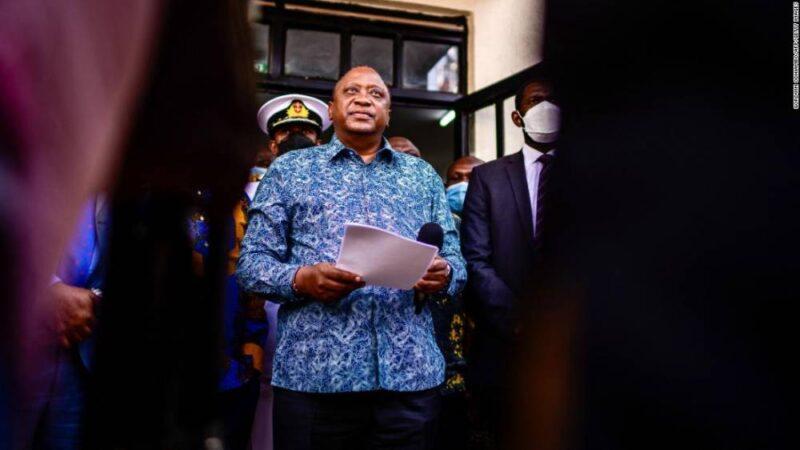
Kenya’s President Uhuru Kenyatta speaks after visiting a hospital in Nairobi on Sept. 29, 2021.The Pandora Papers show no evidence that the Kenyatta family stole or hid state assets in their offshore companies, the BBC reported. Kenyatta and his family members did not respond to the ICIJ’s requests for comment.Kenyatta told CNN that he would “respond comprehensively” to the Pandora Papers once he returns from a foreign trip.”These reports will go a long way in enhancing the financial transparency and openness that we require in Kenya and around the globe. The movement of illicit funds, proceeds of crime and corruption thrive in an environment of secrecy and darkness,” he said, according to a spokesperson.”The Pandora Papers and subsequent follow up audits will lift that veil of secrecy and darkness for those who can not explain their assets or wealth,” he added.
Czech Prime Minister Andrej Babis
The ICIJ report claims the populist prime minister of the Czech Republic secretly moved $22 million through offshore companies to purchase an estate on the French Riviera in 2009, before he entered politics.A businessman who is worth about $3.4 billion according to Bloomberg, Babis has railed against the elite since he became prime minister in 2017, vowing to crack down on tax avoidance.
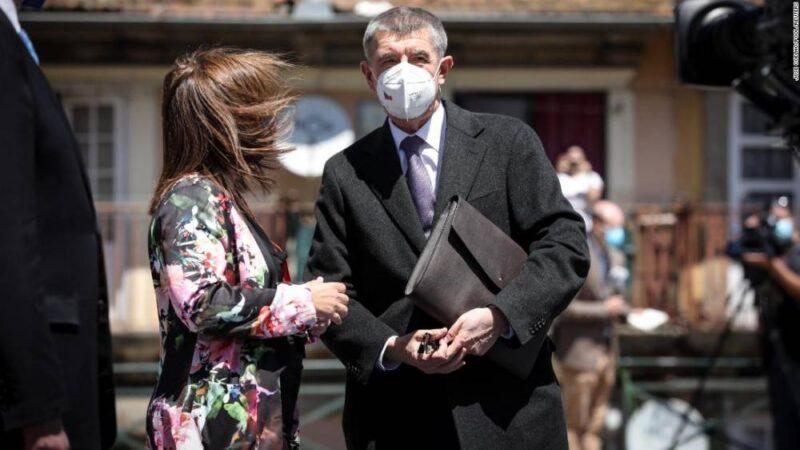
Czech Republic’s Prime Minister Andrej Babis arrives to attend European Social Summit in Porto, Portugal, May 7, 2021. Asset declaration forms obtained by Investigace.cz, the ICIJ’s Czech partner, show that neither the chateau property nor the companies involved in its ownership appear in documents that Babis has filed since entering politics. According to the ICIJ and Investigace.cz, these disclosures were required by Czech law.The ICIJ report was released just days before parliamentary elections in the Czech Republic. Babis responded Sunday on Twitter.”So, it is here. I was waiting what will they what pull out right before elections, to harm me and to influence Czech elections. There is no case that they can pull against me during the time I am in politics,” he said.”I have never done anything unlawful or bad, but it does not stop them to try to slander me again and to try to influence Czech parliamentary elections,” added Babis.Babis did not respond to the ICIJ’s requests for comment.
Ex-British Prime Minister Tony Blair
Former UK Prime Minister Tony Blair and his wife, Cherie Blair, avoided paying £312,000 ($423,000) in stamp duty — a tax on property purchases — when they bought a townhouse in London, the BBC reported. The building now houses Cherie Blair’s law firm.The Blairs purchased the townhouse in 2017 by buying the offshore firm that owned the property. When the property was put up for sale, its ultimate owners were a family with political connections in Bahrain, according to the BBC.The Blairs set up a UK company to purchase the offshore firm. Doing so was legal, but it allowed them to avoid paying stamp duty, according to the BBC, because the tax is not charged when a company owning a property is acquired.
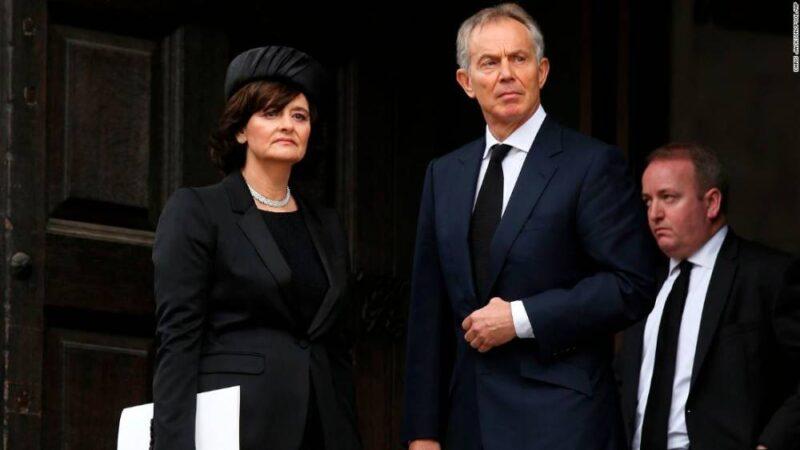
Former British Prime Minister Tony Blair and his wife Cherie Blair leave a funeral on April 17, 2013. “It is not unusual for a commercial office building to be held in a corporate vehicle or for vendors of such property not to want to dispose of the property separately,” Cherie Blair told the BBC. Cherie Blair also said her husband’s only involvement in the transaction was that the mortgage for the property used their joint income and capital, according to the BBC.
“All the arrangements were made for the express purpose of bringing the company and the building back into the UK tax and regulatory regime, where it has remained ever since. All taxes have been paid ever since and all accounts openly filed in accordance with the law,” Cherie Blair said, according to The Guardian.— Bethlehem Feleke and Tomáš Etzler contributed reporting.
Source: edition.cnn.com

